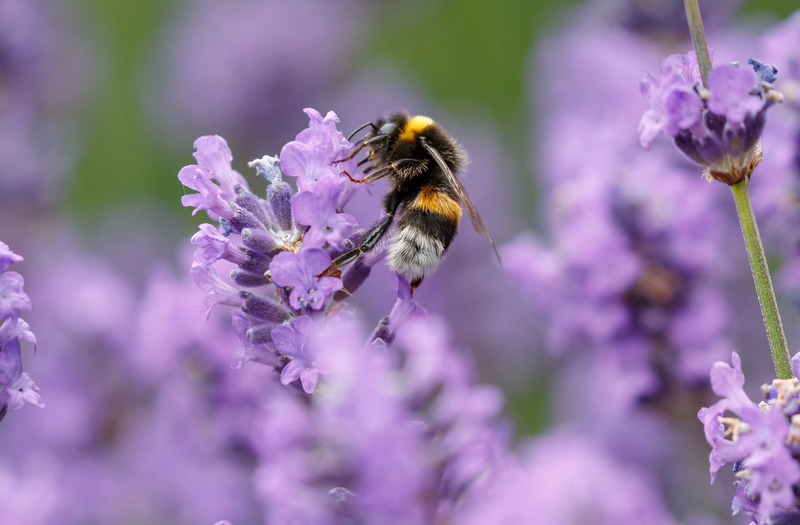Transforming Food Scraps into Fertile Ground
Posted on 23/06/2025
Transforming Food Scraps into Fertile Ground: The Ultimate Guide
Looking for sustainable ways to reduce kitchen waste while enriching your garden? Transforming food scraps into fertile ground is the eco-friendly solution you need! This comprehensive guide unveils simple science-backed methods to compost food waste, creating nourishing soil that feeds your plants and benefits the environment.
Why Transform Food Scraps Into Fertile Ground?
Each year, millions of tons of edible food end up in landfills, generating methane--a powerful greenhouse gas. But what if you could turn that "waste" into black gold for your garden or houseplants? Turning food scraps into fertile ground is one of the most impactful ways homeowners and gardeners can fight climate change, conserve resources, and grow healthier plants.
- Reduces landfill waste: Keeps valuable organics out of trash dumps.
- Enriches your soil: Provides nutrients and improves soil structure.
- Cuts gardening costs: Produces free, natural fertilizer and mulch.
The Science Behind Fertile Ground
*Composting* is the controlled decomposition of organic matter. Microbes, insects, and worms break down food waste, transforming it into humus--a rich, dark soil amendment teeming with life. Healthy compost releases nutrients slowly, improves plant growth, and helps crops resist pests and diseases.

Composting Basics: Where to Start
What Food Scraps Can Be Converted into Fertile Soil?
Not all food waste is suitable for transforming into compost. Here's a quick guide:
Include:- Fruit and vegetable peels
- Coffee grounds and paper filters
- Eggshells (crushed)
- Tea bags (without plastic)
- Stale bread and grains
- Meat, fish, bones, and dairy (attracts pests and smells)
- Oily or greasy foods
- Large amounts of citrus or onion peels (slow to break down)
- Glossy, plastic-coated paper
Choosing the Best Composting Method
Your approach to turning food scraps into fertile ground depends on available space, time, and commitment. Popular methods include:
- Backyard compost bins: Great for yards and gardens--create a pile or use a bin.
- Vermicomposting: Using worms to break down food scraps inside bins (ideal for apartments).
- Bokashi fermentation: An odorless, fast process that "pre-composts" scraps in buckets, suitable for urban settings.
- Tumbler bins: Enclosed rotating drums, accelerate decomposition and deter pests.
Tip: Don't have space to compost? Many communities offer curbside organics collection or local drop-off programs!
Step-by-Step: Transforming Scraps into Nutrient-Rich Soil
1. Setting Up Your Compost System
- Choose a location: Pick a dry, shady area close to your kitchen for easy access.
- Select your container: Use a compost bin, pile, or tumbler.
- Ensure good drainage: Pile should touch the earth so microbes and worms can move in.
2. Balancing "Greens" and "Browns"
Effective composting relies on the right carbon-to-nitrogen ratio. Here's how:
- "Greens" (nitrogen-rich): Fresh food scraps, coffee grounds, grass clippings.
- "Browns" (carbon-rich): Dry leaves, shredded paper, cardboard, straw.
Aim for about 2-3 parts browns to 1 part greens. This balance fuels decomposition and keeps your pile from getting soggy or smelly. Layer materials and mix occasionally for best results.
3. Maintaining & Accelerating the Compost
- Turn the pile: Every 1-2 weeks, to aerate and speed up decomposition.
- Keep moist: Compost should feel like a wrung-out sponge. Add water or browns as needed.
- Watch the temperature: Active piles heat up (110-160?F/43-71?C)--a sign of healthy microbes at work!
4. Harvesting Finished Compost
It can take 2-12 months to turn food waste into rich, dark compost. Finished compost should be earthy-smelling, crumbly, and free of recognizable scraps. Sift out any large, unfinished pieces to add back into your pile.
5. Using Your Fertile Compost
The transformation is complete! Use your compost to:
- Top-dress garden beds and lawns for healthier growth
- Mix into potting soil for new seedlings and potted plants
- Scatter around trees or shrubs to feed roots and retain moisture
- Mulch vegetable beds to suppress weeds and boost productivity
Special Techniques for Small Spaces
Indoor Composting Solutions
Don't have a yard? You can still transform kitchen waste into fertile ground with:
- Worm bins: Under-sink vermicomposters process up to 1lb/week and are nearly odorless.
- Bokashi buckets: Ferments scraps quickly indoors; contents can be buried or composted further in soil.
- Electric composters: Speed up drying and grinding, shrinking waste and creating soil amendments.
Community Compost Drop-Offs
Many cities now offer public drop-off sites for food waste recycling. Research whether your municipality has community gardens, farmers' markets, or curbside pick-up for organics. By pooling efforts, urban dwellers can collectively reduce landfill waste and make local soils richer and more productive.
Overcoming Common Composting Challenges
Solving Odors, Pests, and Slow Decomposition
-
Odors: Typically from excess "greens" or too much moisture.
- Solution: Add more "browns" and mix
-
Pests: Attracted by meat, dairy, or uncovered food.
- Solution: Bury food scraps, keep bin covered, and avoid animal products
-
Slow compost: May lack air, water, or temperature.
- Solution: Turn regularly, check moisture, or add more "greens"
Enhancing Your Garden with Transformed Food Waste
Why Compost Is Superior to Chemical Fertilizer
*Using food waste to create fertile ground* produces compost that is unrivaled for soil health:
- Boosts beneficial microbes and earthworms--living helpers for healthy roots
- Improves drainage and drought resistance--humus soaks up water
- Supplies a wide range of nutrients naturally--plants feed as they need
- Suppresses plant diseases and pests--a thriving ecosystem in every handful
How to Apply Homemade Compost Most Effectively
Scatter your finished compost as a mulch, or blend it into garden beds each season. For container gardens, mix compost at least 1:4 with potting soil. For new lawns or beds, spread a 1-2 inch layer before planting. Compost can even be steeped into a "tea" to spray on leaves, delivering nutrients straight to your plants.
Composting Success Stories
Across the globe, transforming food scraps into garden soil is making a difference:
- Urban gardeners in New York are diverting over 50% of household waste through community composting.
- Schools in California teach children to recycle lunch scraps, growing vegetables for cafeteria meals in the same fertile soil.
- Backyard homesteaders save hundreds of dollars in fertilizer costs while boosting yields naturally.
Environmental Benefits of Transforming Food Waste into Fertile Ground
- Reduces methane emissions from landfills
- Conserves water and improves the soil's ability to store carbon
- Protects biodiversity by minimizing synthetic chemical use
- Builds resilient local food systems

Frequently Asked Questions About Food Scrap Composting
Q: Can I compost citrus peels, onions, and banana peels?A: Yes, but use them in moderation and chop them up. Too much can slow decomposition or create unpleasant odors.
Q: How long does it take to turn food waste into compost?A: With the right conditions--balance, moisture, air--you can produce fertile ground from scraps in as little as 2-3 months.
Q: Will my compost attract rodents?A: Only if it contains meat, dairy, or isn't covered. Stick to plant-based scraps, cover with browns, and use closed bins to avoid issues.
Q: What if I don't have a garden?A: Donate your compost to neighbors, community gardens, or urban farms. Or use it for houseplants!
Conclusion: Turning Food Scraps into Sustainable Abundance
Transforming food scraps into fertile ground is not just a gardening trend--it's a powerful act of ecological stewardship. By embracing composting, anyone can recycle kitchen waste into lush, life-giving soil, closing the loop in the food cycle and minimizing environmental harm. Whether you have an apartment balcony or sprawling backyard, anyone can participate in this green transformation. Start with your next handful of peels, and watch as your soil, plants, and planet thrive!
Ready to transform your food scraps into fertile ground and grow a better world? Start composting today--Mother Nature will thank you!
Latest Posts
Creating a Zen Oasis for Tranquil Outdoor Retreats
Creating a Dog-Friendly Garden: Tips and Tricks
Mastering the Art of Orchid Care



